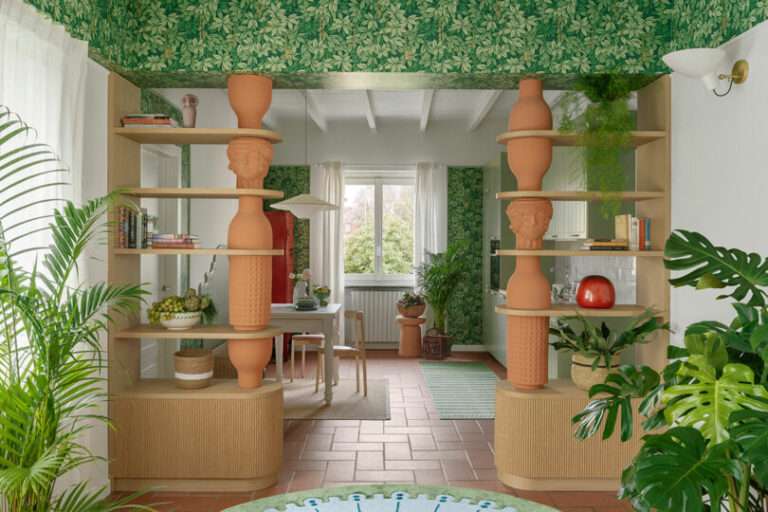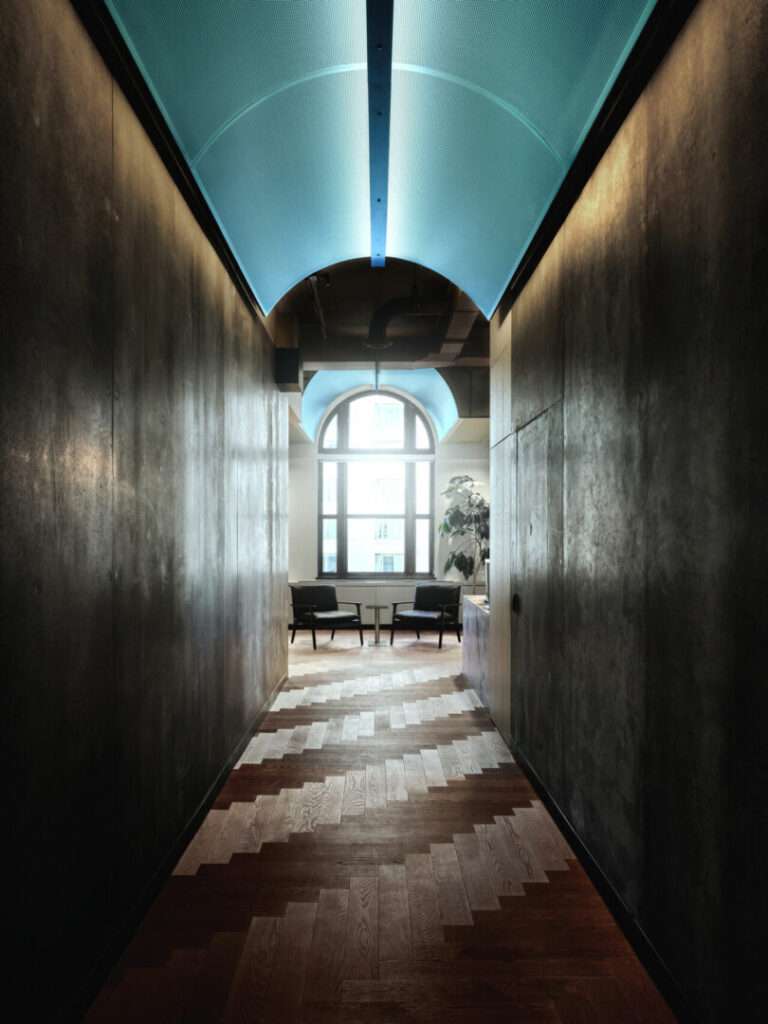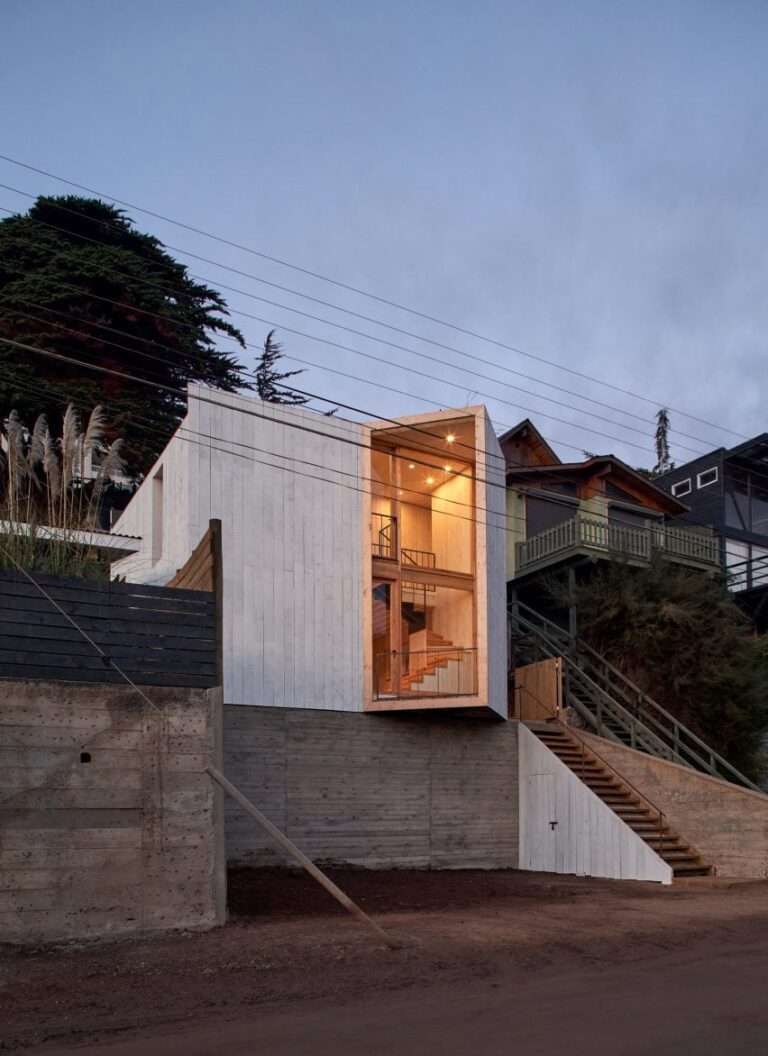Toronto studio Workshop Architecture Inc has created a prefabricated home in Ontario with an exposed structure and blue-painted element on the interior.
Located in Tiny, the Unfinished House is a 1,400-square-foot (130 square metre) two-bedroom, two-bathroom home with additional flexible spaces that double as accommodations for visitors.
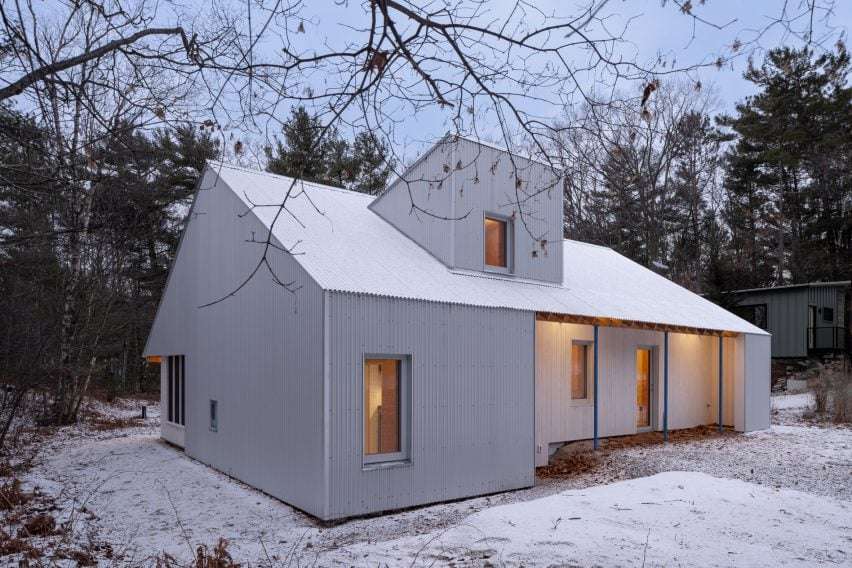
On the interior, the unfinished appearance is a result of budget constraints and a desire to reduce materials to achieve “comfort, durability and low energy use”.
“The house looks raw and unvarnished,” said Workshop Architecture Inc. “The name Unfinished House refers to an aesthetic attitude, an approach to material reduction, and budget restraint that leaves parts of the design incomplete.”
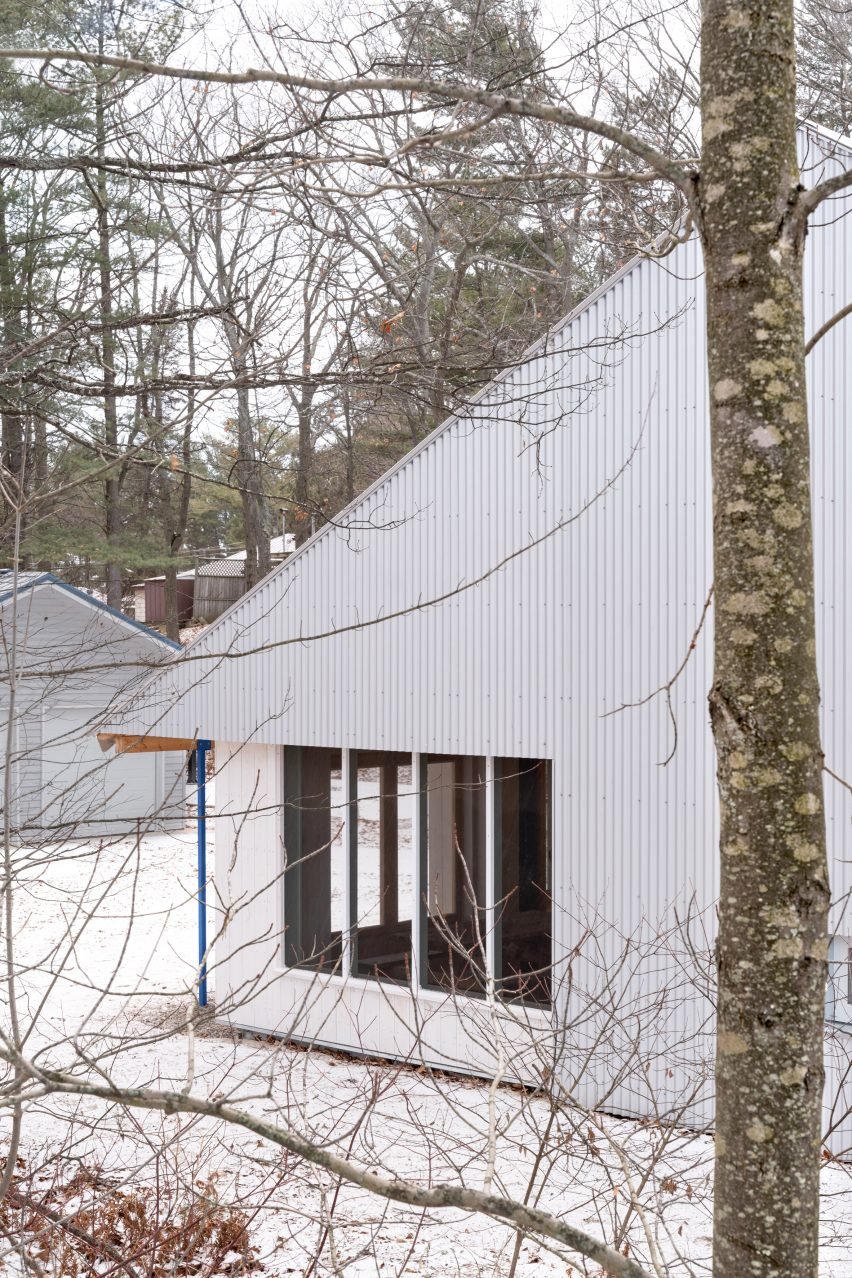
The can house two couples, one in an in-law suite with a private entrance, bathroom and kitchenette that can closed off from the remaining space with a cobalt blue sliding door.
A screened-in porch and mezzanine were designed to be converted into bedrooms for visiting friends and family.
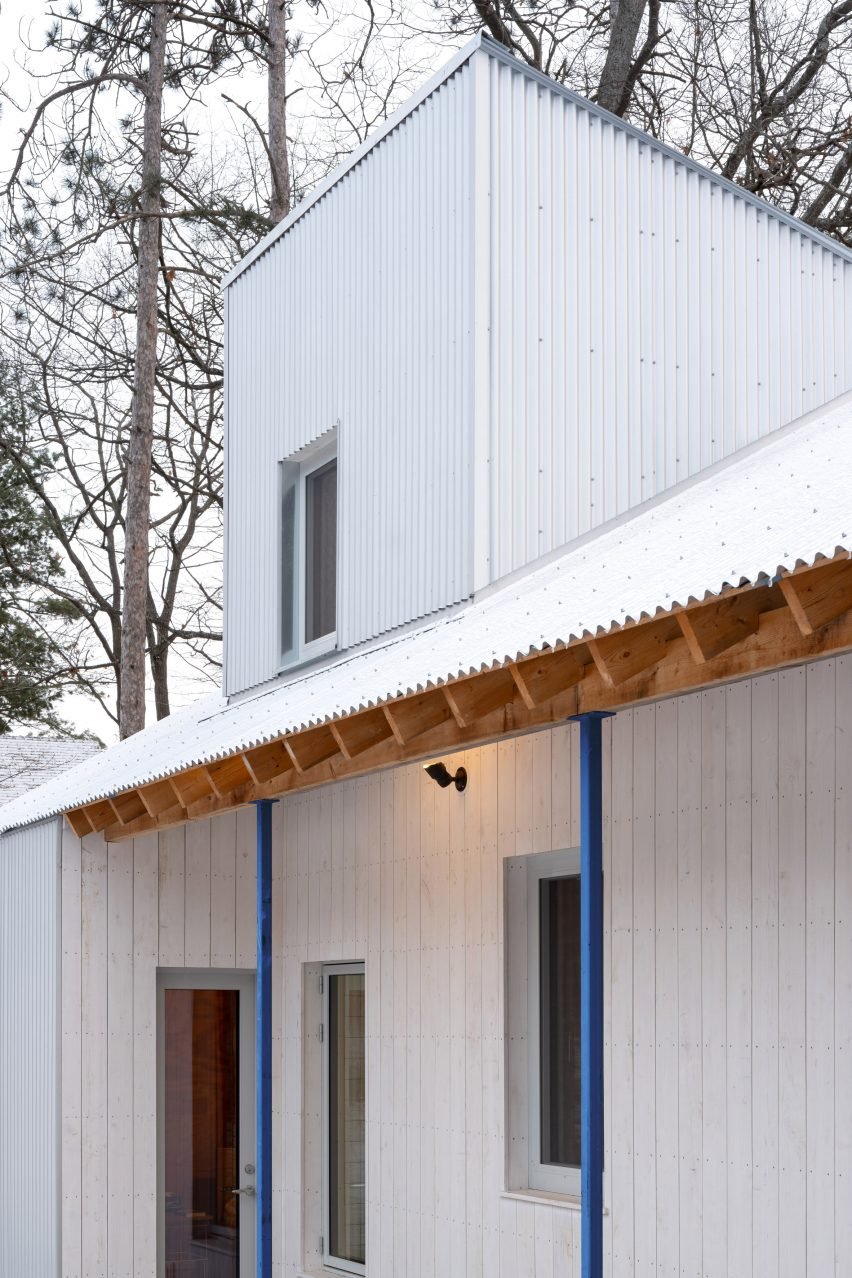
The main entrance leads into a small mudroom, with the primary bedroom, a bathroom and a laundry room on either side. Two staircases surrounding the space lead down into the main living space and up to the mezzanine.
The living space is long and linear, with a light blue kitchen integrated into a far wall and the living space across from it, with the porch at the end.
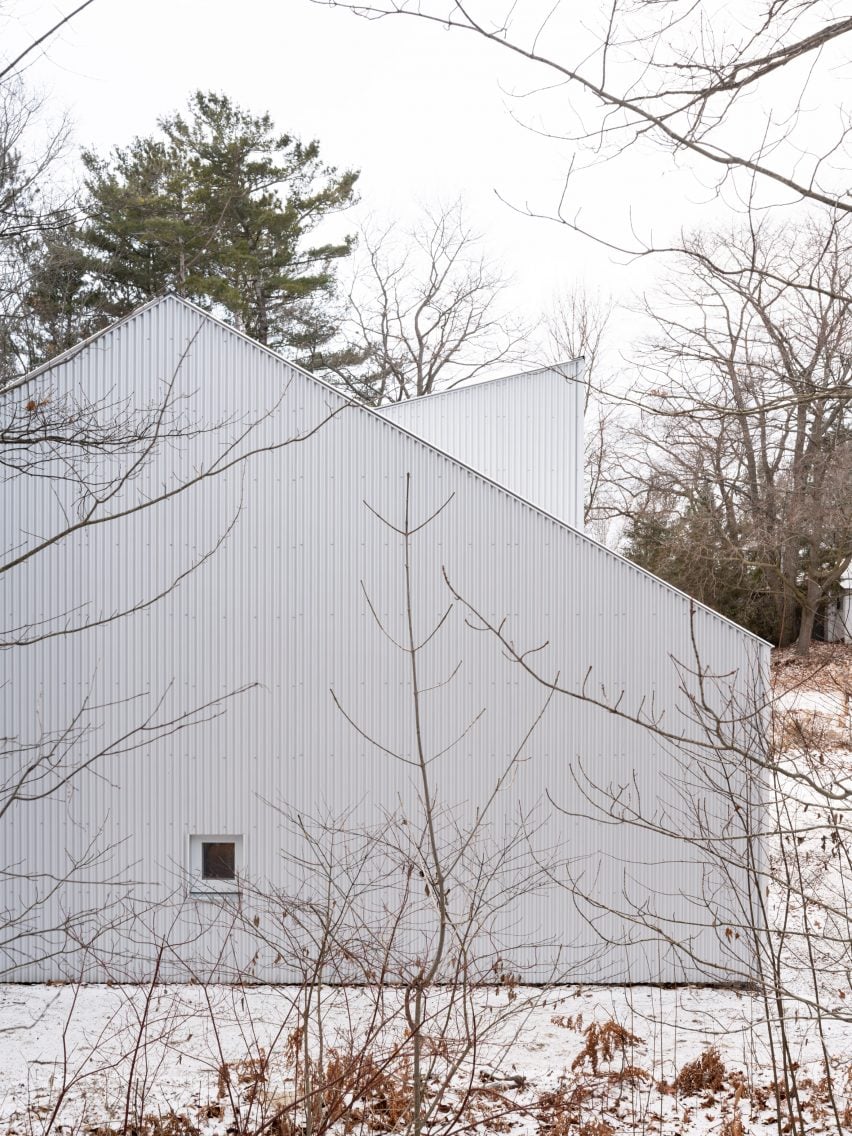
The sliding door leads into the in-law suite’s kitchenette and bathroom, which were clad in white and blue tile with the same blue cabinetry and grout.
Upstairs, the mezzanine contains a home office and den that can be used as extra sleeping space, while utilities such as the interior heat pump were tucked along the back wall.
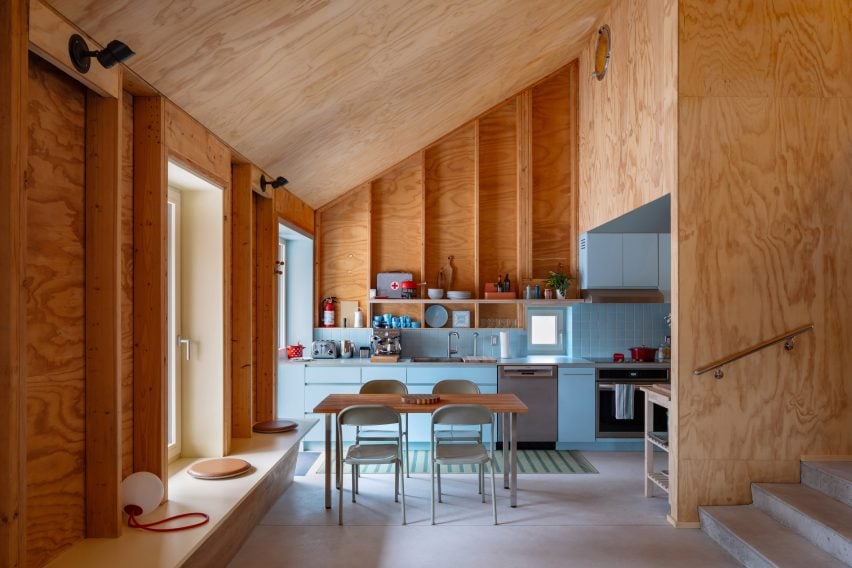
Webnet wire rope was use as a railing or protective wall, to maximise light and ventilation throughout the space.
It is a nautical reference, as the studio was informed by the vernacular architecture of rural Ontario for the house’s design, materiality, and colour selection, which includes a mixture of seasonal and permanent beach houses and farms.
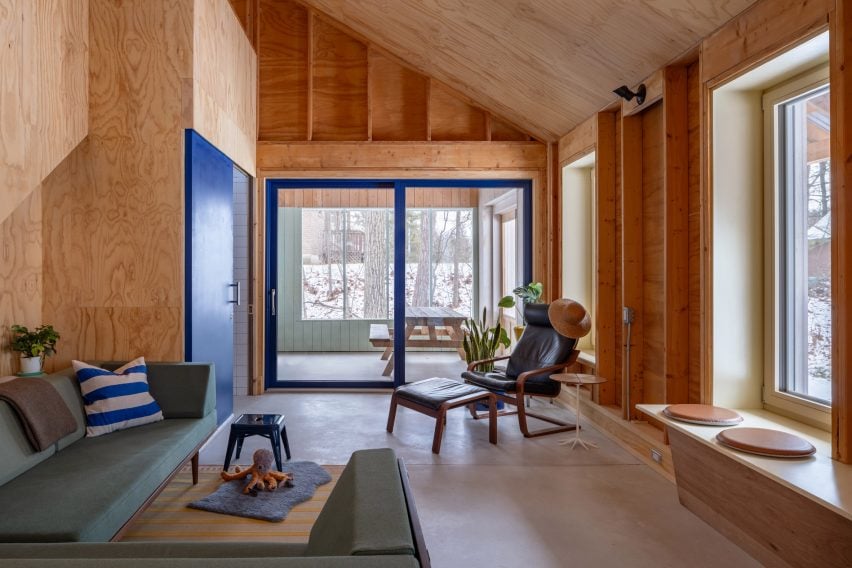
Workshop Architecture optimised the house to lower its greenhouse gas use by 90 per cent, according to the studio.
Its glued-laminted timber walls were prefabricated off-site and insulation was incorporated outboard, or on the opposite side of the vapour barrier as most homes, which meant the interior wall structure could be left uncovered, eliminating the need for interior cladding.
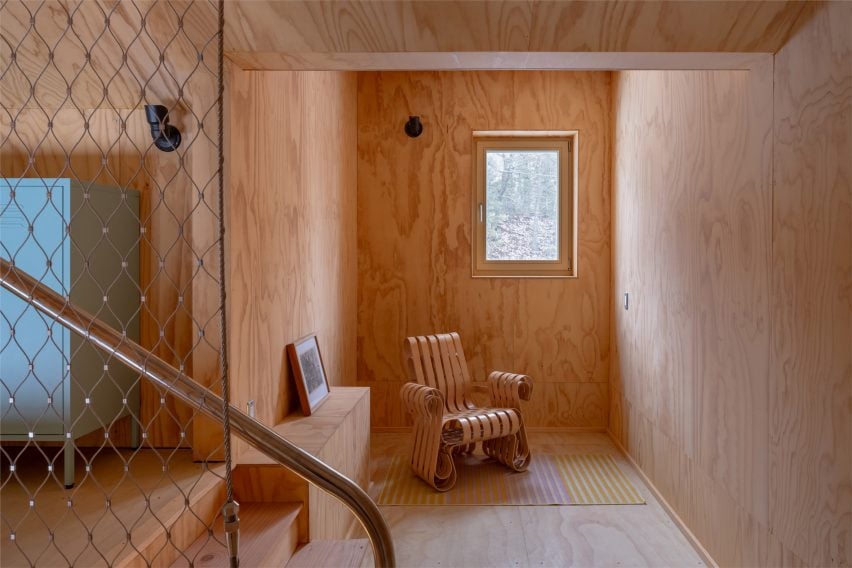
“As the insulation is outboard,” said the studio. “The douglas fir plywood and pine wood framing is left exposed on the interior for visual interest and for small storage shelves, inspired by William Turnbull Jr’s Hine House at Sea Ranch.”
Triple-glazed pine and aluminium-clad windows were set deeply into the walls to create sills that can double as seating, desks, and counters.
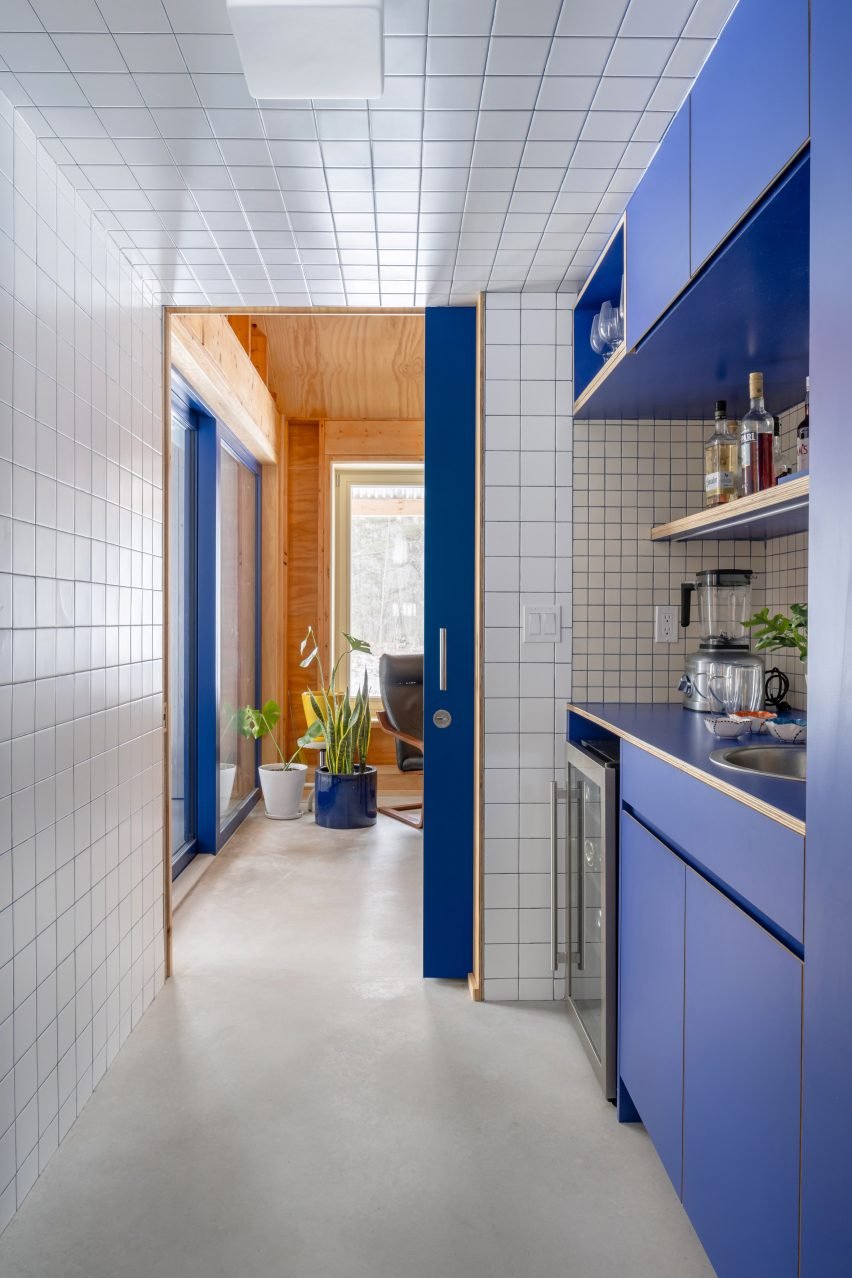
“Unlike many contemporary projects, there is a purposeful restraint in glazing,” said the studio. “This is a suburban-scaled site, but with the careful window placement, there is a feeling of being alone in a forest.”
The windows were also placed to create cross ventilation with square windows on the sides of the house facing neighbours, smaller to increase privacy.
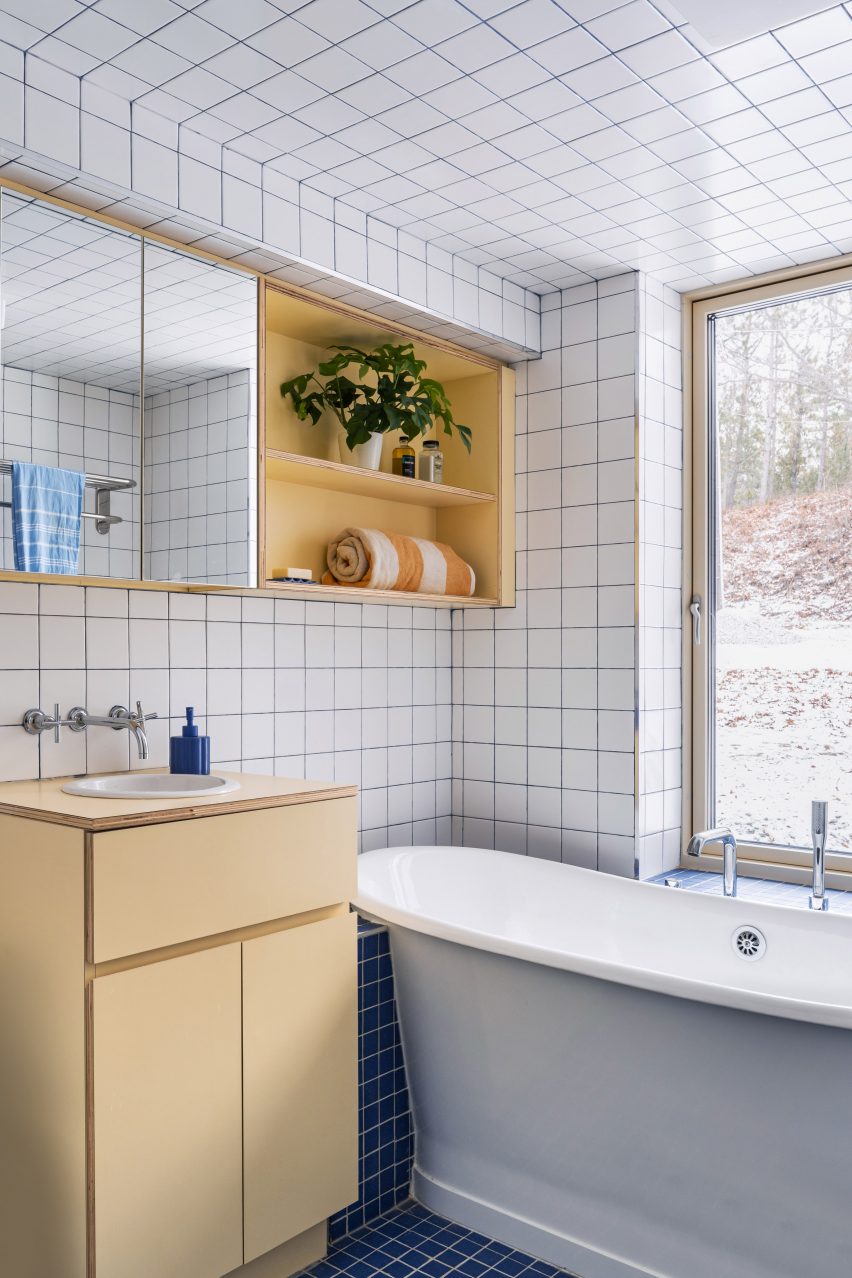
The studio also limited concrete use by eliminating a basement, choosing instead to lay the house on a shallow foundation and concrete slab, which was then left exposed on the interior to avoid the use of additional flooring.
The underside of the roof deck, wood framing, exterior framing and white sheathing were also left exposed.
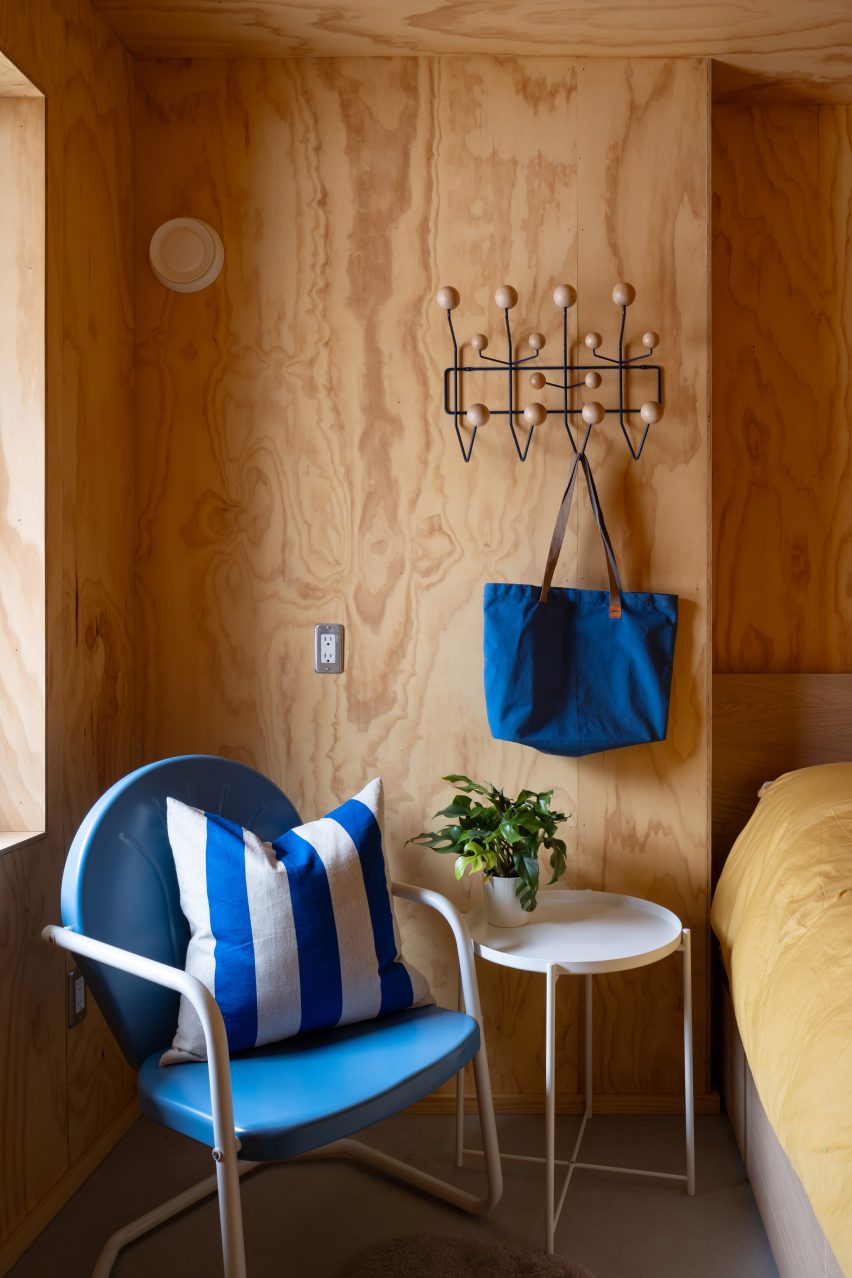
“Where multiple two-by-six studs form a column an arte povera (poor art) attitude is at play – no upgrading to solid wood, glulams, or wrapping the dimension lumber,” said the studio.
The house runs on a heat pump, LED lights, and an energy recovery ventilator for moisture management and “very little electricity”, with no gas connection.
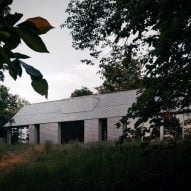
 StudioAC places cedar-clad house on natural ridge in Ontario
StudioAC places cedar-clad house on natural ridge in Ontario
Solar power infrastructure for hot water and electricity was incorporated into the house for later build-out, “when the owner’s budget allows”.
Ceiling fans were also installed in the bedrooms, living room and porch to move hot air down in the winter and help mitigate heat and humidity in the summer.
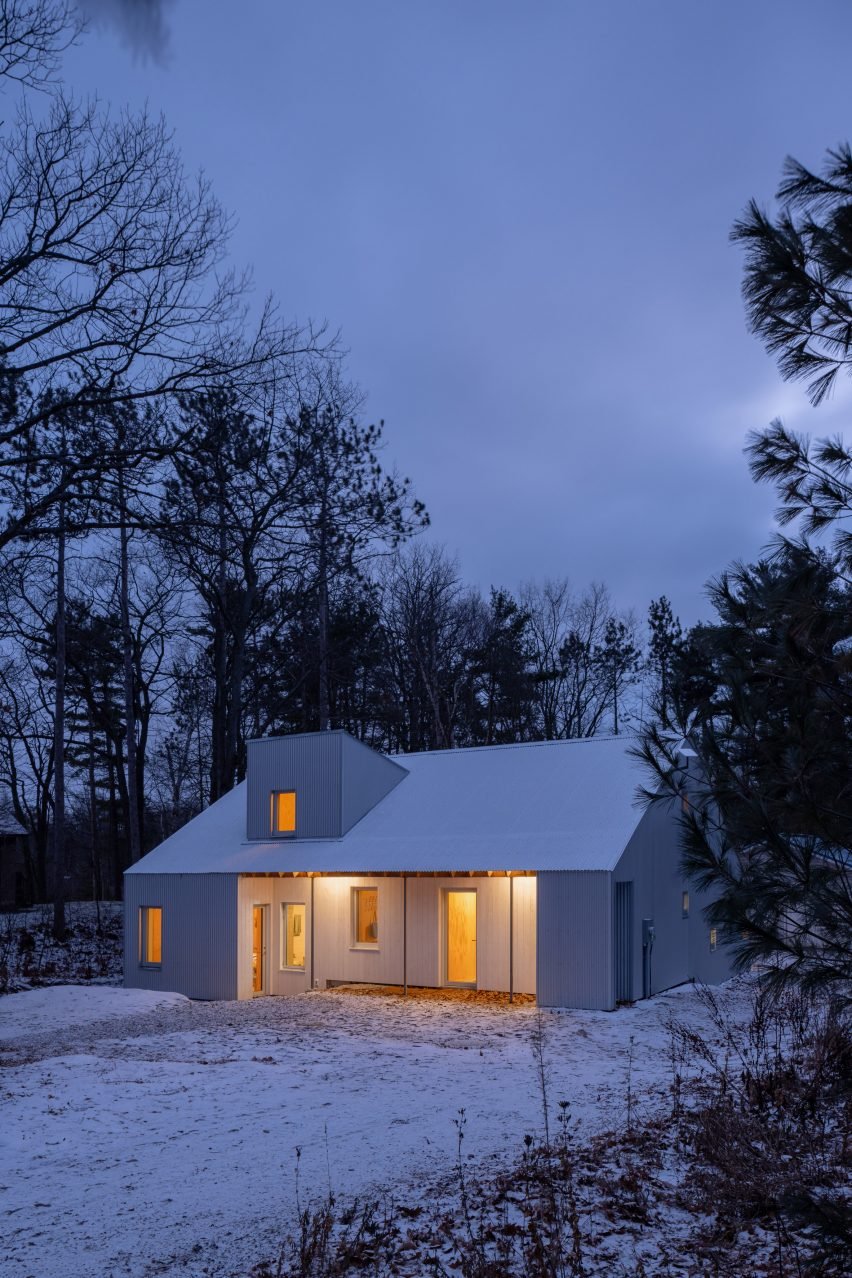
“During a major heat wave in 2023, the house stayed under 20 degrees with no air-conditioning,” said the studio.
The studio is using the prefabricated panels piloted during the project on a 16-unit affordable housing project in Toronto.
Workshop Architecture Inc is a Toronto-based architecture studio founded in 2010 by David Coluss and Helena Grdadolnik with a focus on sustainable and equitable residential projects.
Other recent residences built in Ontario include a cedar-clad holiday home tucked into a hill by Studio AC and a Toronto home with a pixilated brick facade by Partisans.
The photography is by Scott Norsworthy
Project credits:
Design team: David Colussi, Helena Grdadolnik, Nina Hitzler
Structural engineer: Konsolidated Structural
Mechanical and electrical engineer: CK Engineering
Passive House Certifier: Peel Passive House
Prefabrication: Simple Life Homes
Contractors: Evolve Builders Group, Muskoka River Fine Homes


